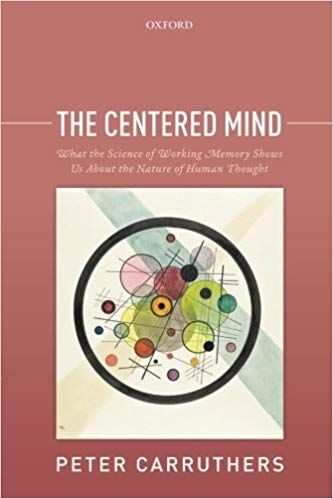
Peter Carruthers – The Centered Mind: What the Science of Working Memory Shows Us About the Nature of Human Thought
| Product Type | Ebook |
|---|---|
| Format Type | (NEW) |
| Author | Peter Carruthers |
| File Size | 2.53 MB |
| ISBN-10 | 0198801327 |
| ISBN-13 | 978-0198801320 |
The Centered Mind offers a new view of the nature and causal determinants of both reflective thinking and, more generally, the stream of consciousness. Peter Carruthers argues that conscious thought is always sensory-based, relying on the resources of the working-memory system. This system has been much studied by cognitive scientists. It enables sensory images to be sustained and manipulated through attentional signals directed at midlevel sensory areas of the brain. When abstract conceptual representations are bound into these images, we consciously experience ourselves as making judgments or arriving at decisions. Thus one might hear oneself as judging, in inner speech, that it is time to go home, for example. However, our amodal (non-sensory) propositional attitudes are never actually among the contents of this stream of conscious reflection. Our beliefs, goals, and decisions are only ever active in the background of consciousness, working behind the scenes to select the sensory-based imagery that occurs in working memory. They are never themselves conscious.
Drawing on extensive knowledge of the scientific literature on working memory and related topics, Carruthers builds an argument that challenges the central assumptions of many philosophers. In addition to arguing that non-sensory propositional attitudes are never conscious, he also shows that they are never under direct intentional control. Written with his usual clarity and directness, The Centered Mind will be essential reading for all philosophers and cognitive scientists interested in the nature of human thought processes.
What is Metaphysics ?
Metaphysics is the branch of philosophy that studies the first principles of being, identity and change, space and time, causality, necessity and possibility. It includes questions about the nature of consciousness and the relationship between mind and matter. The word “metaphysics” comes from two Greek words that, together, literally mean “after or behind or among [the study of] the natural”. It has been suggested that the term might have been coined by a first century CE editor who assembled various small selections of Aristotle’s works into the treatise we now know by the name Metaphysics (μετὰ τὰ φυσικά, meta ta physika, lit. ‘after the Physics ’, another of Aristotle’s works).
Metaphysics studies questions related to what it is for something to exist and what types of existence there are. Metaphysics seeks to answer, in an abstract and fully general manner, the questions:
- What is there?
- What is it like?
Topics of metaphysical investigation include existence, objects and their properties, space and time, cause and effect, and possibility. Metaphysics is considered one of the four main branches of philosophy, along with epistemology, logic, and ethics.
Peter Carruthers – The Centered Mind: What the Science of Working Memory Shows Us About the Nature of Human Thought
Readmore About : Peter Carruthers











![Actioncoach.Kajab - Brad Sugars Profit Masters [Billionaire in Training] download](https://ivseed.info/wp-content/uploads/2022/03/zz.jpg)
























Reviews
There are no reviews yet.